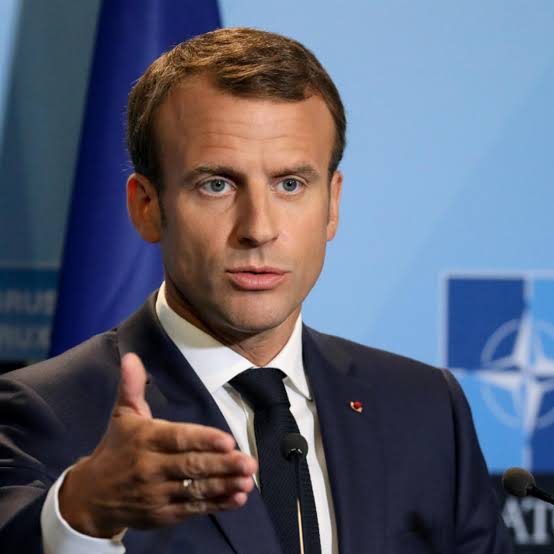
PARIS – The administration of Prime Minister François Bayrou in France may be on the verge of collapse this week as potential successors to Emmanuel Macron are beginning to emerge.
Negotiations over the national budget have once again reached a deadlock.
To advance his proposed budget, Bayrou is anticipated to invoke Article 49.3 of the Constitution on Monday, enabling him to skip a vote in the National Assembly.
This move is expected to prompt a no-confidence motion from the left-wing La France Insoumise, which will be reviewed and voted on by the communists and ecologists on Wednesday.
Consequently, the survival of the government will likely depend once more on the Socialist Party (PS) and the far-right Rassemblement National (RN), both of whom have not yet revealed their positions.
Thus, the French government teeters on the edge of dissolution—once again.
When Macron decided to dissolve the National Assembly after his significant defeat in the European elections last June, his intention was to ‘clarify’ the political landscape.
However, that intent has proven to be more of a setback than a triumph.
Since the second round of legislative elections in July, achieving a majority within the National Assembly has been impossible, leaving it splintered into three factions: the left-wing coalition of the New Popular Front (NFP), centrist and republican right-wing parties, and the far right.
“I must confess that the dissolution has, at least for now, resulted in greater divisions within the Assembly rather than solutions for the French populace,” the president stated at the close of 2024.
A few days prior, Michel Barnier had the unfortunate distinction of becoming the Fifth Republic’s shortest-serving prime minister—only three months and eight days—after succumbing to a no-confidence vote that garnered support from both the left and the far right.
The president
The dissolution has only reinforced the one power that truly counts in France – the presidency of the Republic. Not Macron’s. He has committed too many errors to draw focus. Instead, it is the institution itself that commands attention.
The constitution endows the president with extensive powers that can be enacted without the prime minister’s approval, including the ability to dissolve the Assembly and initiate referendums.
He is the exclusive custodian of nuclear capabilities and may, in the case of a serious and immediate threat to the Republic’s institutions, national integrity, or France’s international obligations, invoke the exceptional powers outlined in Article 16.
If this provision is activated, the head of state can unilaterally wield legislative and executive powers indefinitely. This occurred in 1961 during the coup attempt in Algeria by some generals.
Although France still lacks a budget for 2025 and Trump is threatening to initiate a trade war with the EU, French political parties are focused on a different matter: the upcoming vacancy in the presidential office.
Candidates are already preparing for the election in 2027. An earlier date might even be a possibility if the ongoing political crisis forces Macron to resign.
Line up
On the left, La France insoumise leader Jean-Luc Mélenchon is aware that his ultimate challenge is near and is advocating for the president’s resignation to prompt an early election. Thirteen years after competing against him in 2012, Mélenchon may find himself once more up against former Socialist president François Hollande, who conveniently secured a parliamentary seat this summer and appears ready to enter the contest.
This scenario is not welcomed by those who have dedicated efforts to revitalize the Socialist Party (PS), as well as by MEP Raphaël Glucksmann, who is appealing to the same group of reformist left-wing voters.
The dynamics are even more intricate within the governing parties, where nearly a dozen prospective candidates are already preparing.
Hardline Interior Minister Bruno Retailleau (Les Républicains) and his Macronist counterpart in the justice department, Gérald Darmanin, are resorting to heightened security rhetoric, despite the historical advantage this strategy provides to the far right.
Among the ‘old guard,’ former Prime Minister Édouard Philippe indicated in early September that he has “no ambition other than the presidency.”
In a similar vein, Dominique de Villepin – renowned for his opposition to the 2003 Iraq invasion at the UN Security Council – recently declared his intention to “be on the front lines” to “confront an America that ignores its global responsibilities.”
On the far right, Marine Le Pen is preparing for her fourth presidential bid. However, her protégé Jordan Bardella is struggling to suppress his own ambitions, particularly if the National Rally (RN) leader is barred from running due to a ruling on 31 March regarding EU parliamentary assistants.
Alternatively, one might consider Sarah Knafo, the young MEP from the Europe of Sovereign Nations group, who already has solid connections with the new Trump administration.
Within the National Assembly, there are growing calls for greater compromise to finalize the budget. Politicians are urging elected officials to honor their “responsibility” to advocate for the welfare of the French populace.
Nonetheless, France has already experienced four different prime ministers in 2024 alone, and there’s no guarantee that fewer will emerge this year.


